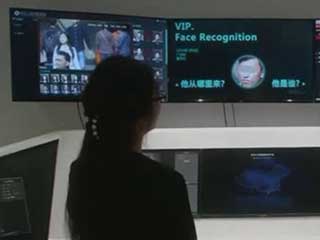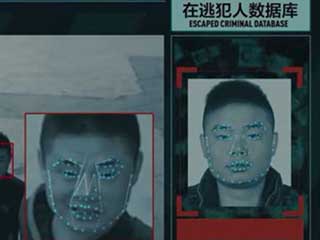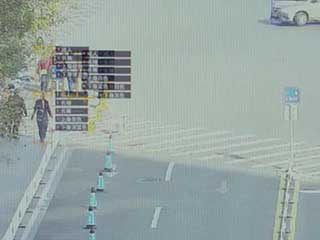State of Surveillance

In our modern age mass surveillance is becoming commonplace. Governments and local police are increasingly using innovative methods of audio and video cameras and other clandestine equipment to track criminal activities, to monitor the communication, movements and lifestyle habits of everyday citizens. New advances in facial recognition technology are being paired with artificial intelligence and machine learning, so that today, cameras can not only immediately identify people with remarkable precision, but also log and track this data.
Modern China is a good example of how this new technology is already being deployed and the unintended, or in some cases, intended consequences it might have for humanity going forward. Today China has the largest video surveillance network in the world and plans to expand it to more than 600 million cameras by 2020. With the rise in facial recognition and artificial intelligence, it feels more like someone is watching all those cameras at all times.
In a Chinese town it’s easy to get busted for jaywalking with facial recognition technology. Video monitoring stations are part of a new plan by the Chinese government to publicly shame citizens caught breaking the law. If you cross the street against the light, cameras with facial recognition technology will take a picture of your face, cross-reference it with your government ID, and then post it up on public video screens to embarrass you.

But China isn't embracing facial recognition just to catch jaywalkers. The technology is starting to appear just about anywhere you can imagine. It helps make menu recommendations at your local fast-food spot. You can even pay for your food with your face. A recent market invention is a face recognition dispenser machine that helps curb the waste of toilet paper at public bathrooms. Once you get yourself a precisely measured amount of toilet paper in the public bathroom, you will have to wait 10 minutes until you may request another portion: the machine recognizes you and refuses to dispense toilet paper to the same person several times in a row.
Chinese tech companies are now at the cutting edge of developing new and sophisticated ways to do video analysis. In many companies ID passes are no longer needed, cameras recognize you and let you in through the door. Coming late for work is not an option, since all your comings and goings maybe strictly monitored.
Several large Chinese development firms are already testing how to track suspicious activity within a large crowd. No more anonymity because there are cameras watching all the time. But the reach of this technology goes way beyond public areas and increasingly infiltrates private spaces as well. If you come to a housing complex you will no longer find a doorman but a camera with facial recognition technology. Everything is recorded: the number of visitors, time or arrival and departure, bulky packages etc.

Today governments are investing heavily in tech companies to help transform that government data into a virtually omniscient surveillance network. For example, a Chinese government-sponsored company Perie introduced covert facial recognition technology in major cities. Amazingly, in the first year of test runs, the system helped apprehend more than 400 fugitives.
But China isn't the only place experimenting with facial recognition applications. An airport in the Middle East is already planning face-scanning aquariums at security checkpoints. In Europe, state-sanctioned and private initiatives are testing this technology in multiple locations, from train stations to online classes. And in the US, private companies are investing millions to secure government contracts, which could make machine learning and image recognition a regular part of police work.
But now the main question pops up: “Who owns this data?” Take police body cams. Right now, there is sort of an arms race of people trying to sell police body cameras to police all across America. All of that data from all of those officers is actually really valuable for other non-law enforcement purposes. You're really capturing patterns of society. And if the private companies can use that data for other things, even sell it for other reasons, they're only need profit. So, it all comes to securing the data transfer and data exchanges. Moreover, there must be safeguards against substituting data already stored in data centers.
There is a race among hi-tech companies for creating safe blockchain-based devices that would guard our data, prevent hackers from using or corrupting it. Several companies have already come up with solutions that can be described as “digital insurance”, including Russian developer NAO-Pro. But how long will the implementation take?





